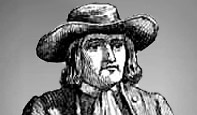Generally however science deals only with probabilities. But Whitehead himself taught that the Laws of Nature, which scientists deduce or induce from their experiments, are relations between the mental concepts they have in their minds: not relations between the realities of Nature itself. And modern physics admits that the regularities of science may be put into it by our methods of observation and experiment. So in pure science, the concept of substance vanishes, and changing energy states takes its place; and we are left with waves in the quantum theory, and curvature in relativity. Not much of a foundation, on which to build a practical rule by which to live.
But out of this bleakness, modern physics rediscovers that the realities of the world of experience are complete organisms, in which the nature of the whole influences the character of the parts; which means that where mental states and thoughts are part of the organism, they enter into the whole and into the parts as well. In ordinary language, where there is thought, it extends to the ends of one’s fingers and toes, as we all know. The carpenter using a chisel, the pianist playing the piano, knows that much of his skill is in his fingers. So of course thought influences matter; it is a characteristic of thought to do so. And the door is wide open for thought to stimulate acts, which transcend Nature as normally experienced.
If science is God’s gift to man, it suggests that Christ’s second coming in clouds and glory is unlikely to happen, in my lifetime at any rate. When you consider the marvels of the Voyager satellites, it would be foolish to predict that man will not achieve more than he has already. When you consider the marvels that the satellites reveal, it would be foolish to think that the Almighty could not arrange a second coming, if he wanted to. But the likelihood is that He will not. And when viewed historically, the obsession of early Christians with the second coming reduced them to a crowd of selfish, self-centred people. In secular perspective, it was as immoral as Nero fiddling while Rome burned; it amounted to their saying the Empire could perish, provided they had a seat at the celestial banquet.
The Day of Judgement held no terrors for Jesus, he thought he was going to be the judge; and he may have been right. He was right about his resurrection, so far as we can tell. He was hopelessly wrong about the timing of his second coming, and possibly about its manner. Nor should the Day of Judgement hold any terrors for the man in whom God’s spirit dwells. God wants men to be strong and confident, provided they do not want to be separate from himself. There may be a need to be born again, before a man can believe with any confidence that the spirit of God dwells in himself; and that means abject penitence once. But after that, it is to be hoped that a man will keep clear of sin; if not at once, then by fairly continuous progress. Christ did not indulge in an orgy of repentance; and we should be like him. He said he had not committed sin; and we should be able to say that in our present condition, we do not either.
Nor should we be too quick to criticise those Jews who gave up following Jesus because they found the concept of eating his flesh and drinking his blood revolting. It has overtones of tribal savagery, in which you ate your enemy’s flesh to take on his strength. His use of this gruesome symbolism can only mean, in my opinion, that he wanted people to say, “Christ is bone of my bone, flesh of my flesh, spirit of my spirit”; such a close intimacy, that it is impertinent for other people to lecture him about it. No clergyman is bone of my bone etc..at least I sincerely hope not. And for a clergyman to lecture me on a relationship, which is far more intimate than any friendship between us, would be impudent. Just as it would be impudent for me to lecture him! This surely is what Jesus meant? He did not want us to be cannibals.
Jesus must have healed many people; the record of his having done so, and of his having spoken about it, is so repetitive that it is impossible to dismiss it all as hero-worship. Besides there have been healers in every age and in every society; there is no reason why he should not have been one, and a very successful one. No-one is ever likely to understand how he healed; but then from my reading, no healer ever does understand how he himself heals.
